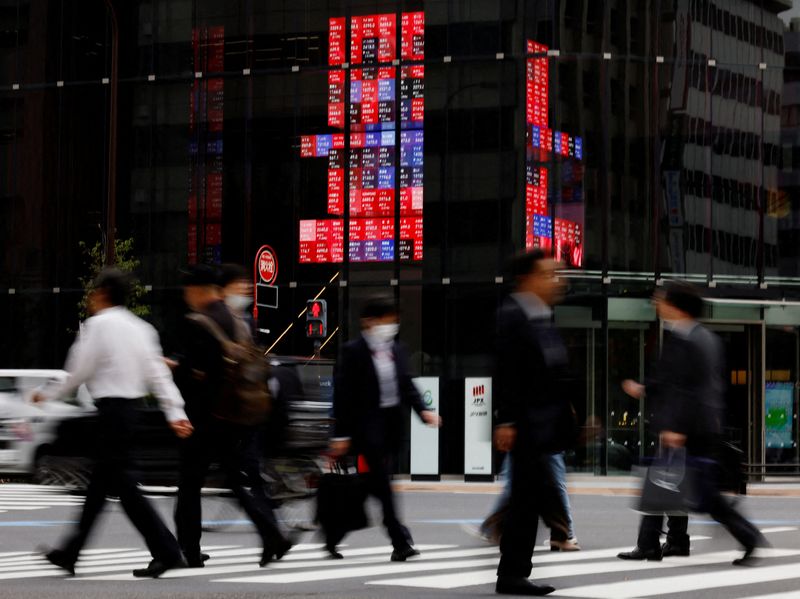TOKYO (Reuters) – The Japanese government maintained its assessment that the economy is recovering moderately on Tuesday, while cautioning about the potential impact of U.S. President-elect Donald Trump’s policies on the economic outlook.
“Trends in the U.S. economy can have a direct or indirect impact on the Japanese economy, and we also need to be aware of the possibility of an impact through fluctuations in financial and capital markets,” a Cabinet Office official said upon the release of the monthly economic report for November.
Trump has promised that on his first day in office he would impose a 25% tariff on all products from Mexico and Canada, and an additional 10% tariff on goods from China.
Risks such as higher interest rates abroad and a stagnant Chinese real estate market were also identified as potential threats to Japan’s economy.
The Cabinet Office said the Japanese economy was recovering moderately although it remains pausing in parts, keeping the assessment unchanged for a fourth straight month.
The government’s view on most of the key sub-sectors, including consumption and capital investment, was maintained. It raised its evaluation on imports while it downgraded its assessment on public investment.
The Cabinet Office also revised its view on domestic corporate goods prices to “gradually rising recently” and consumer prices to “rising recently,” reflecting increases in rice, raw material costs due to a weak yen and logistic expenses because of labour shortage.
Private consumption, which accounts for more than half of economic output, continued to recover bolstered by wage increases, strong summertime bonuses and temporary income tax cuts, the government said.
The report was presented on Tuesday at a meeting of relevant cabinet ministers and Bank of Japan Governor Kazuo Ueda.
Japan’s economy expanded an annualised 0.9% in the July-September quarter, slowing from the previous three months on tepid capital spending. However, an unexpected pick-up in consumption was a bright spot.




